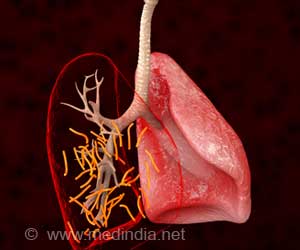One reason for the development of allergy may be malfunction of the respiratory epithelium, which allows allergens to bind to, enter and travel through the epithelium.
One reason for the development of allergy may be malfunction of the respiratory epithelium, which allows allergens to bind to, enter and travel through the epithelium. Two studies by Finnish research groups on this subject have recently been published in two international biomedical journals (1) Allergy, and (2) Journal of Allergy and Clinical Immunology.
Research on the mechanisms of allergy has focused on the understanding of aberrant immunoresponses. Only lately the role of epithelium as the first line of defense against allergens has been realized. So far, we do not know why and how allergens are transported through the epithelium.The research groups of the Helsinki University and Helsinki University Central Hospital in collaboration with several other Finnish research groups aimed to clarify what happens in the epithelium immediately after allergen exposure, before the allergic reaction develops. They used birch pollen allergen (Bet v 1) exposure and showed that this allergen binds to, enters and travels through conjunctival and nasal epithelium of allergic patients but not of healthy subjects within one minute after the exposure. An allergic reaction developed when the allergen reached mast cells under the basement membrane.
During the research it became evident that during spring, in allergic patients the birch pollen allergen Bet v 1 changed the expression of hundreds of genes of the nasal epithelium compared to samples taken during winter; and of these genes several were connected with protein transport and regulation of cytoskeleton. An astonishing finding was that the immune response of in healthy controls to pollen exposure was strong, and hundreds of genes changed their expression during winter and spring; however, many of these genes were related to the function of the immune response.
"We were able to describe a mechanism whereby birch pollen allergen Bet v 1 travels through the epithelium of allergic patients but not of healthy subjects. This kind of transport mechanisms are used by several viruses and bacteria when invading the epithelium and infecting patients", explains Professor Risto Renkonen (Haartman Institute, University of Helsinki and HUSLAB, Helsinki, Finland).
A systems biological approach was used in these studies, where data obtained concomitantly by several different methods is collected into a massive data warehouse allowing one to start analyzing the roles of different proteins and their networks in the pathogenesis of allergic reactions.
Reductionistic analyses, i.e., work focusing on one or only a few molecules are gradually replaced by systems approaches. The ability to discover new, etiologically relevant disease mechanisms is the major motivation for unbiased explorative approaches. The drawback of such top-down experiments is that they are very expensive and produce much more raw data than hypothesis-derived approaches thus generating an overflow of data. However, the urgent need to develop in silico data managing and analysis environments has been recognized by several research groups and biocompanies.
Advertisement
SRM/L










